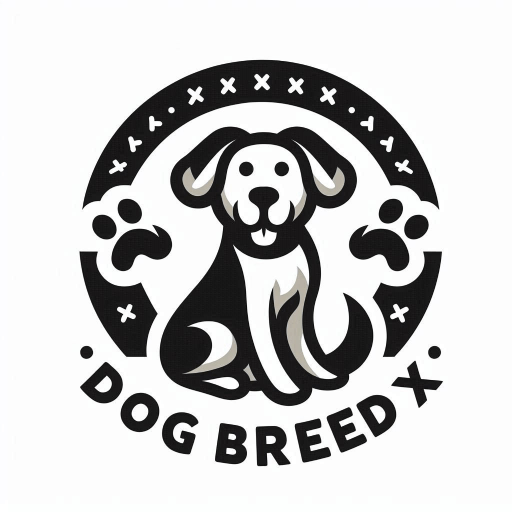Table of Contents
Mudi Dog Breed: A Comprehensive Guide
The Mudi dog breed, though lesser-known, is a hidden gem among dog enthusiasts. Originating from Hungary, this versatile and intelligent breed is celebrated for its herding capabilities and unique characteristics. With their curly coats and spirited personalities, Mudi dogs are gaining popularity among dog owners who appreciate their loyalty, agility, and keen intelligence.
History and Origin
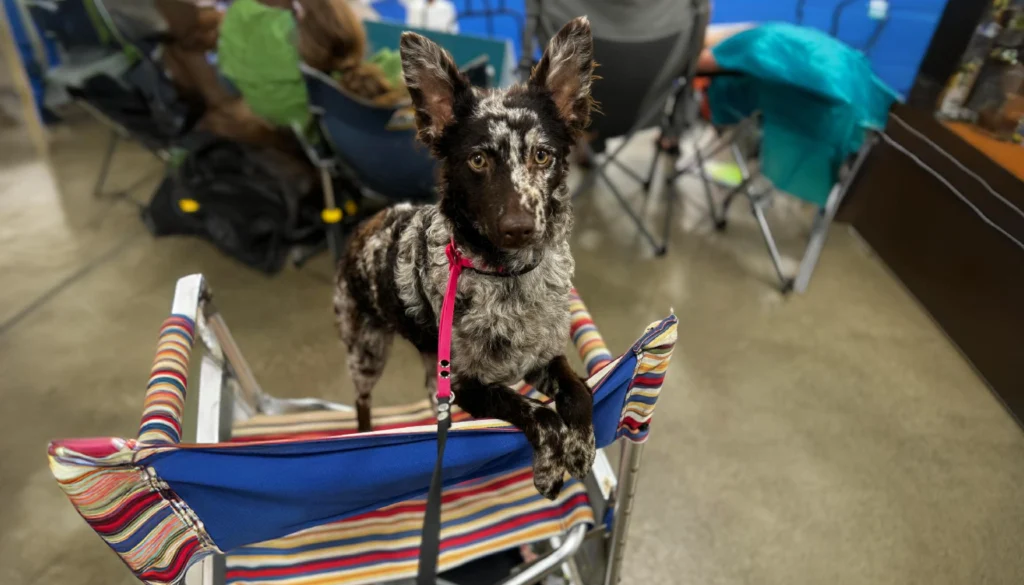
The Mudi breed traces its roots back to Hungary, where it was developed as a versatile herding dog. Its history dates back to the 19th century, with its primary role being to assist Hungarian shepherds in managing livestock. The breed’s exact lineage is somewhat unclear, but it is believed to be a natural breed, shaped by the demands of its working environment rather than intentional human intervention.
Historically, the Mudi was not widely recognized outside of Hungary until the late 20th century. Its talents in herding, hunting, and guarding made it an invaluable asset to farmers. In recent years, the breed has garnered international recognition, not only for its working abilities but also for its suitability as a companion animal.
Physical Characteristics
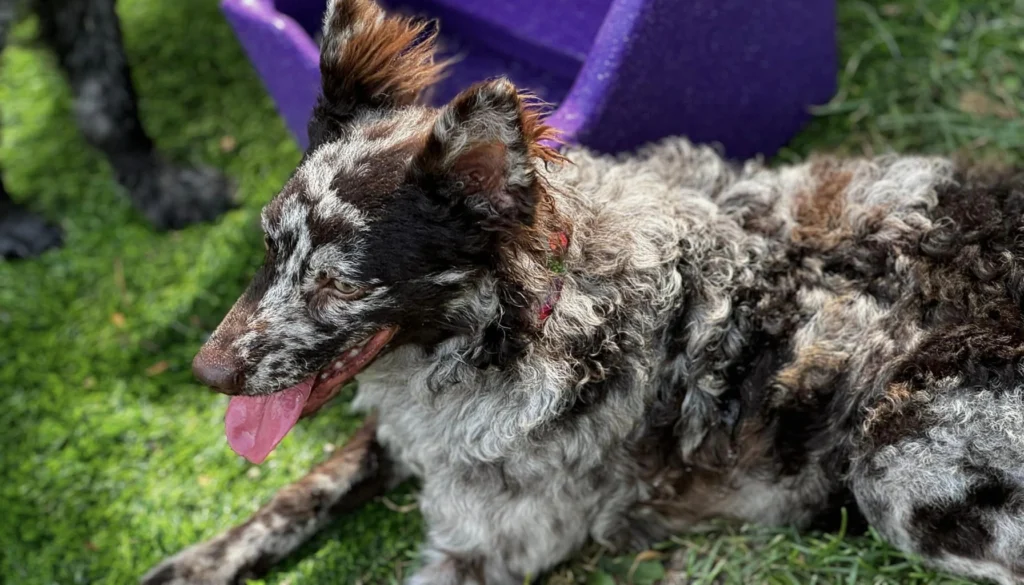
The Mudi is a medium-sized dog with a distinctive appearance. Here are some key physical traits:
- Size: Adult Mudis typically stand between 15 to 18.5 inches tall at the shoulder and weigh between 18 to 29 pounds.
- Coat: The breed sports a unique, wavy to curly coat that is both dense and protective. This coat helps them endure various weather conditions.
- Colors: Mudis come in a variety of colors, including black, white, brown, gray, and a distinctive merle pattern.
- Distinctive Features: One of the most notable features of the Mudi is its expressive face, characterized by erect ears and a bright, alert expression.
Temperament and Personality
The Mudi is known for its energetic and spirited personality. They are highly intelligent and quick learners, making them excellent companions for active owners. Here are some typical temperament traits:
- Intelligence: Mudis are exceptionally smart and thrive on mental stimulation. They excel in various dog sports and agility activities.
- Loyalty: They are incredibly loyal to their families and often form strong bonds with their owners.
- Social Interaction: Mudis generally get along well with children and other animals, provided they are properly socialized from a young age.
- Alertness: With their keen senses and natural guarding instincts, Mudis make excellent watchdogs, alerting their owners to any unusual activities.
Health and Lifespan
The Mudi is generally a healthy breed, but like all dogs, it is prone to certain health issues. Common health concerns include:
- Hip Dysplasia: A genetic condition that can affect the hip joints, leading to discomfort and mobility issues.
- Epilepsy: Some Mudis may be prone to seizures, which can be managed with proper veterinary care.
- Eye Conditions: Progressive Retinal Atrophy (PRA) is a concern in the breed, potentially leading to vision loss.
The average lifespan of a Mudi is around 12 to 14 years. To ensure a long and healthy life, regular veterinary check-ups, a balanced diet, and adequate exercise are essential.
Care and Grooming
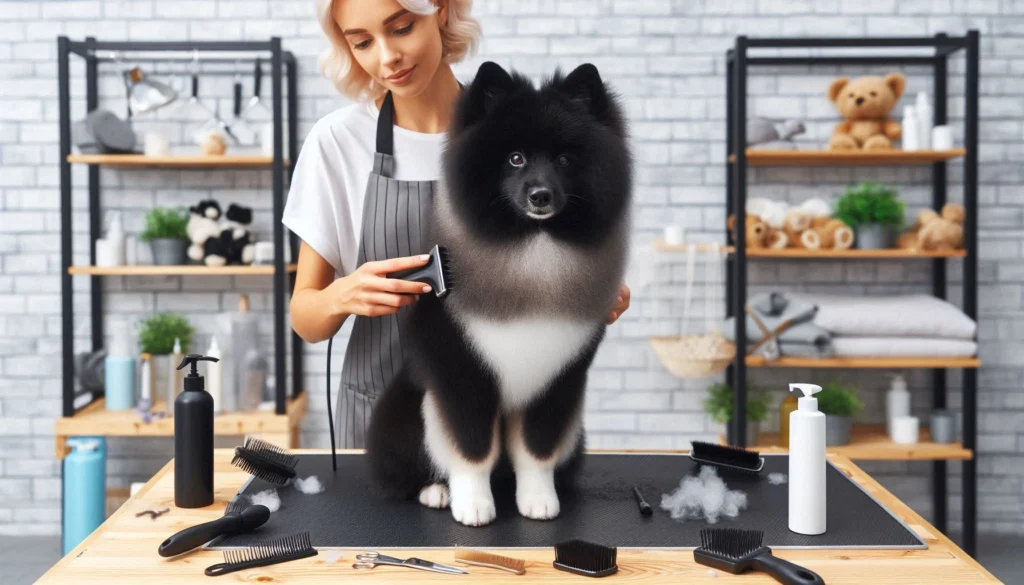
Caring for a Mudi involves a commitment to regular grooming, exercise, and a balanced diet. Here are some practical care tips:
- Grooming Needs: The Mudi’s curly coat requires regular brushing to prevent matting and tangling. Bathing should be done as needed, depending on the dog’s activity level and environment.
- Exercise Requirements: Mudis are highly energetic and need plenty of physical and mental stimulation. Daily walks, play sessions, and engaging activities like agility or obedience training are ideal.
- Diet: A balanced diet with high-quality dog food is crucial. The exact amount of food will depend on the dog’s age, size, and activity level.
Training and Socialization
Training a Mudi can be both rewarding and challenging due to their high intelligence and energy levels. Here are some tips for effective training and socialization:
- Positive Reinforcement: Use positive reinforcement techniques such as treats, praise, and play to motivate your Mudi.
- Early Socialization: Expose your Mudi to various environments, people, and other animals from a young age to ensure they grow up to be well-rounded adults.
- Consistency: Consistent training sessions and a clear routine help Mudis understand what is expected of them.
- Mental Stimulation: Incorporate puzzle toys, obedience training, and agility exercises to keep their minds sharp.
Suitability as a Family Pet
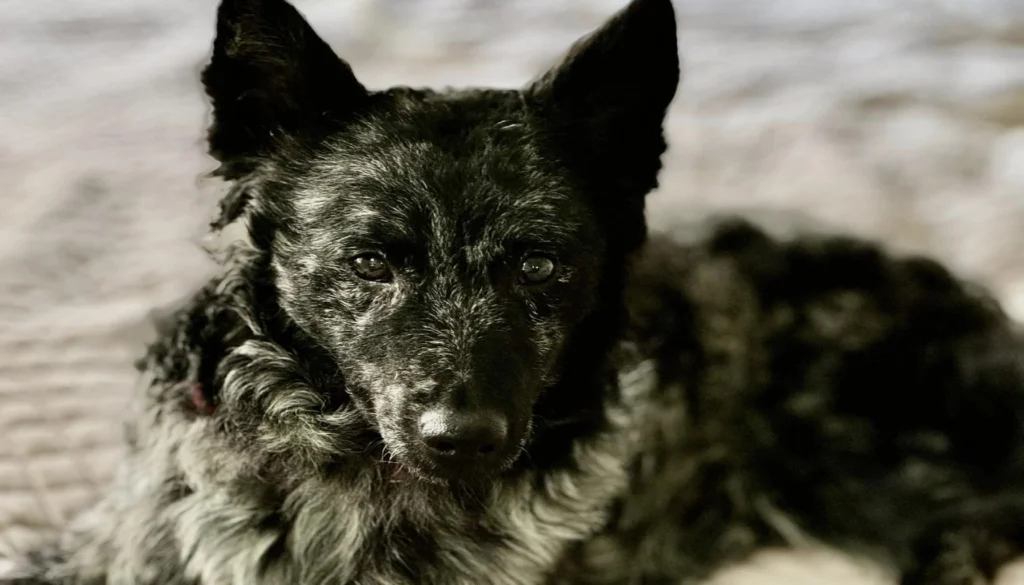
The Mudi can make an excellent family pet for the right household. Here are some considerations:
- Living Environment: Mudis adapt well to both urban and rural settings, provided they receive enough exercise and mental stimulation.
- Energy Levels: Their high energy levels make them suitable for active families who enjoy outdoor activities.
- Children and Other Pets: Mudis are generally good with children and other pets, especially if they are well-socialized.
Fun Facts and Trivia
- Rare Breed: The Mudi is considered a rare breed, with limited numbers outside of Hungary.
- Versatile Workers: Besides herding, Mudis have been used in search and rescue operations and as therapy dogs.
- Curly Coat: Their curly coat is not just for looks—it provides excellent protection against the elements.
Similar Dog Breeds
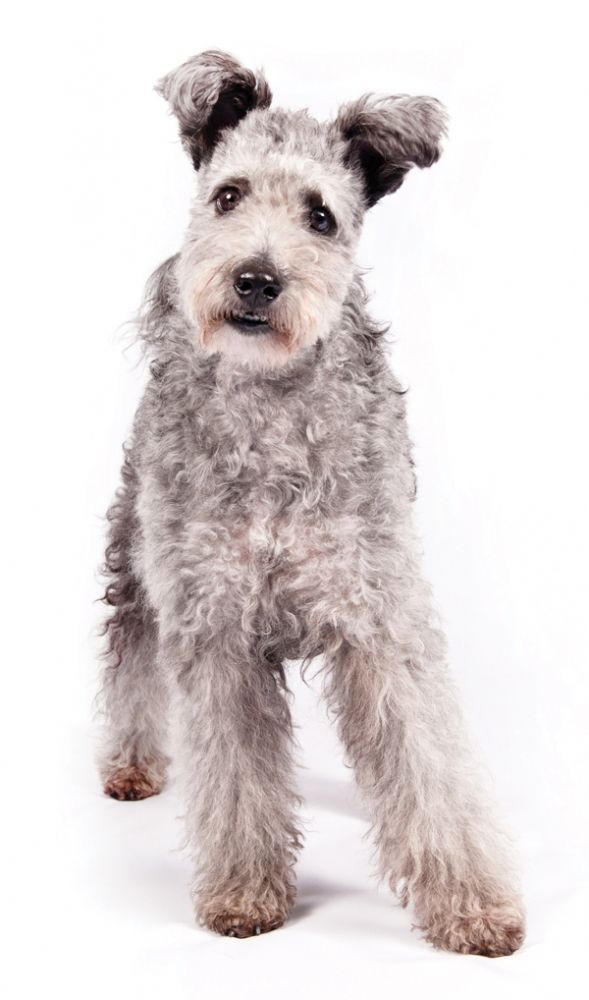
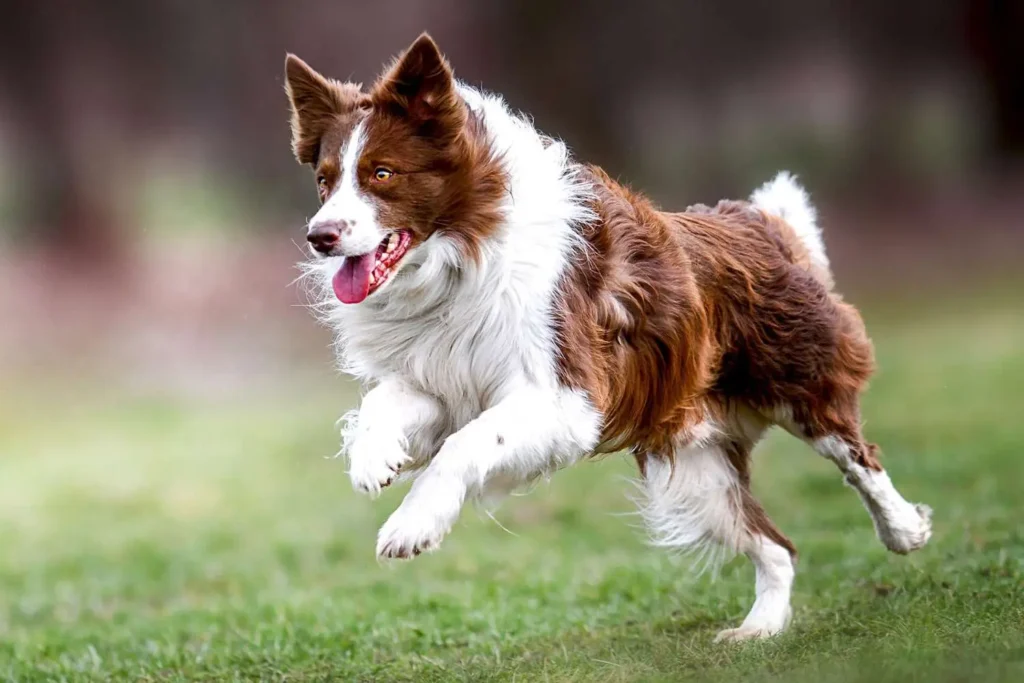
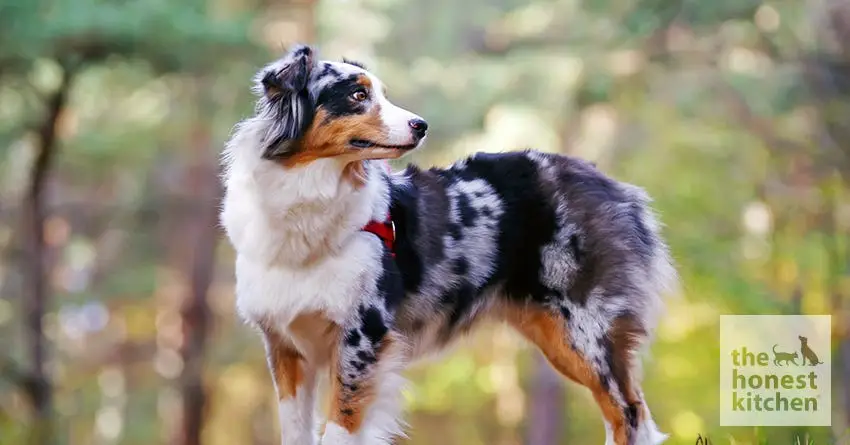
- Pumi: Another Hungarian herding breed, the Pumi is similar in size and appearance to the Mudi but with a more distinctively curly coat and lively personality.
- Border Collie: Known for its intelligence and herding skills, the Border Collie is slightly larger than the Mudi and requires a high level of mental and physical stimulation.
- Australian Shepherd: This breed shares the Mudi’s herding instinct and energy levels, making it a great companion for active owners.
Conclusion
The Mudi dog breed is a remarkable choice for those seeking an intelligent, loyal, and versatile companion. With their unique appearance and spirited personalities, Mudis can bring joy and excitement to any household. If you’re considering adding a Mudi to your family, ensure you’re ready for an active and engaging lifestyle. Explore more about this fascinating breed and see if a Mudi might be the perfect fit for you.
FAQ
Is the Mudi a dangerous dog?
No, the Mudi is not considered a dangerous dog. They are known for their loyalty and intelligence. With proper training and socialization, they are generally good with children and other animals.
Is the Mudi the best guard dog to protect you or your family?
While the Mudi has strong guarding instincts and will alert you to any unusual activity, it is not typically used as a guard dog. They are more suited to herding and companionship roles, although their alertness does make them good watchdogs.
